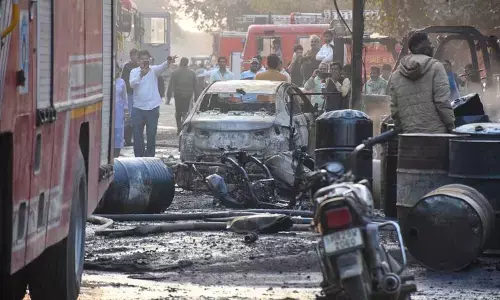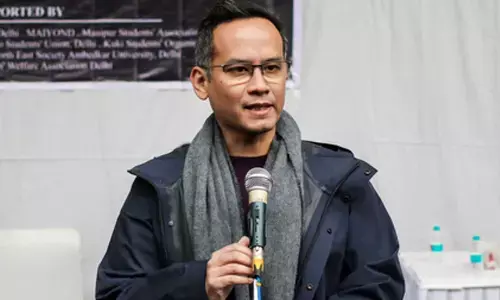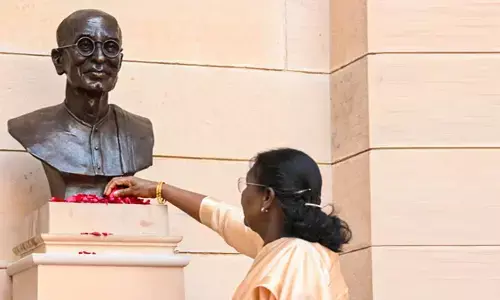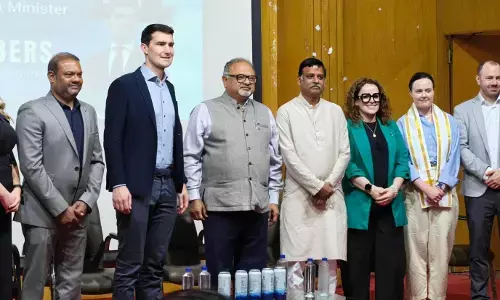Cast(e) Aside in Bihar

The news from Bihar is not good. After some years of relative quietude, news reports speak of a spurt in anti-dalit violence since 2005 – over 32,000 cases of atrocities in a rising curve.
 The news from Bihar is not good. After some years of relative quietude, news reports speak of a spurt in anti-dalit violence since 2005 – over 32,000 cases of atrocities in a rising curve. The split in the governing NDA, an upper class-dalit social coalition in 2013, saw a rise in caste confrontation. Nitish Kumar’s creation of a new class of maha-dalitshas turned sour. As in the ditty: large fleas have little fleas on their backs to bite them; little fleas have lesser fleas and so on ad infinitum.
The news from Bihar is not good. After some years of relative quietude, news reports speak of a spurt in anti-dalit violence since 2005 – over 32,000 cases of atrocities in a rising curve. The split in the governing NDA, an upper class-dalit social coalition in 2013, saw a rise in caste confrontation. Nitish Kumar’s creation of a new class of maha-dalitshas turned sour. As in the ditty: large fleas have little fleas on their backs to bite them; little fleas have lesser fleas and so on ad infinitum.
This is not unexpected. Nitish Kumar, once hailed as the great reformer, feared to take on caste. He had on first being elected, set up two committees, one under Debu Bandhopadhyaya, of Operation Barga fame, to review land reforms; and a second under Muchkund Dubey to look at school education, improve standards and make schooling more inclusive. Both produced excellent reports that were soon shelved for fear of caste opposition. Caste-related agrarian oppression of the most vicious kind and caste barriers in rural schooling have been the bane of feudal Bihar of which all the top political, bureaucratic and professional elite are part.
In the result, the agrarian condition of Bihar is pathetic. Serfdom is widespread and land relations abominable. Records of rights are incomplete and share-cropping on wholly iniquitous terms is widespread, especially in North Bihar. The Kosi and Gandak projects have largely failed on account of abysmal land relations that, among other things, do not permit rational drainage. Almost a hundred years ago, Gandhiji initiated his first rural mass movement in Champaram. The agrarian condition in that region is today scarcely better and perhaps worse than at that time. The reason is CASTE that permeates all aspects of life like a scourge. Governments are caste-led at different levels and power has shifted from the upper to middle castes and sundry combinations. Pressures are building up and sooner or later, there will be a massive social explosion.
Nitish Kumar has long been asking that Bihar be treated as a special category state. The irony is that he would trade caste for budgetary largesse. The rest of the country is being asked to pay to keep Bihar casteist. None has dared touch the problem, barring the Leftists. So Bihar remains a political slum ruled by a rapacious caste mafia and politics a game of manipulating caste. Swachh Bharat will not work if the country lauds unclean hearts. The so-called religious class are hypocrites who “see no evil” and did little or nothing to redress this dreadful issue. There is no moral outrage over caste discrimination.
The law is openly defied and criminal acts and atrocities often escape punishment. Due process and justice are scorned by those who can get away with it. Look at Jayalalithaa’s disgraceful conduct. She has offered Rs 3 lakh compensation to each of the families who lost a member through “heart attack” or suicide on learning of her jail sentence. What a wretched farce at state expense that scorns justice. A touch of very firm governance would put an end to such nonsense in quick measure. Corruption cannot be eliminated by evading justice for years and then blackmailing the state with threat of mayhem should action be taken.
Amit Shah, on bail on murder charges, is only one among others who is morally “absconding” from a CBI court as he is “too busy.” Justice scorned again! And now there is the strange case of a Gujarat High Court bench on October 10 scrapping a two-member commission set up by the government to investigate the mysterious “Snoopgate” scandal involving the extraordinary surveillance of a young woman at the personal instance of the then Chief Minister, Modi, allegedly at her request and with the consent of her parents. A citizen who feels threatened is entitled to police protection. But what kind of protection? She was tailed in Ahmedabad and Mumbai without written orders, and her phone and those of her parents and friends were tapped at Modi’s instance in Karnataka as well. She was watched in her bedroom, restaurants, the cinema and elsewhere. No privacy was permitted. And who conducted the surveillance? None other than the Anti-Terror squad, the IB and Crime Branch through 2009. According to Amit Shah, the Minister of State for Home, the process was closely monitored by Modi himself. Many questions remain unanswered.
A public outcry led to the appointment of a two-man commission which has now been wound up after 11 months of desultory activity on the ground that everything was done with the consent of the young lady and her parents. None of the material evidence was apparently examined. The matter needs to be appealed and reopened. High principles of justice, due process, privacy and the use and abuse of state power without accountability are involved. None of this can be swept under the carpet. The stink remains.
And now we have Mohan Bhagwat addressing heads of major educational institutions over lunch to explain the RSS philosophy, seek their views on education and solicit their cooperation on social reform. Nothing wrong in that per se. But if he had addressed caste or the ending of manual scavenging that would have been more to the point. To cap the week, we have Francois Gautier, a French RSS acolyte, denigrate Kailash Satyarthi’ s Nobel Peace Prize Award which he feels should have gone to a “true Hindu” uninfluenced by any kind of Christian associations. (“Outlook” October 27). How petty can we get!
The Shiv Sena has now offered Hindu couples with more than 10 children a bonus of Rs 21,000 each and appealed to Hindus to eschew family planning in order to augment Hindu numbers, while the RSS mouthpiece in Kerala laments that Godse killed Gandhi rather than Nehru who was responsible for Partition. The RSS has disowned the article as the personal view of the author, a previous BJP electoral candidate. Is that enough?








